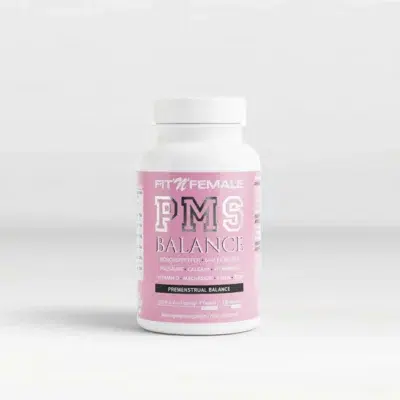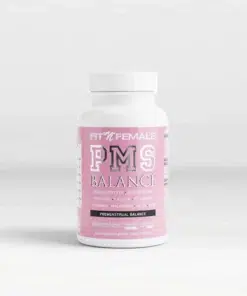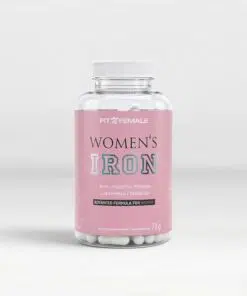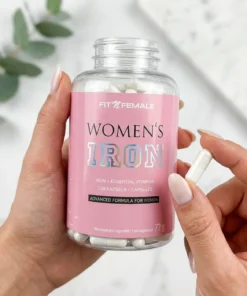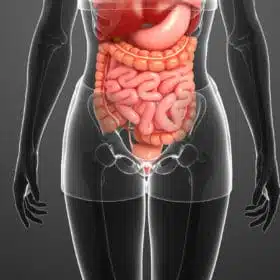You are not alone. Water retention during menstruation is common. [...]
Premenstrual syndrome
In medicine, there are several names for the increased retention of fluids in women who are otherwise completely healthy. The term "premenstrual syndrome" is most commonly used, as the symptoms mainly occur in the days before menstruation. In most women, the first signs of edema become noticeable shortly after ovulation. How long the water retention lasts varies from person to person. While some women only have to deal with them in the days before their period, others suffer for up to two weeks (including the period phase).
The causes are not fully understood. For this reason, the deposits during the period are called cyclical idiopathic oedema. The same symptoms can also occur almost independently of menstruation (e.g. in warm and humid weather), which is why the neutral term fluid retention syndrome is equally correct.
Why does unwanted water retention occur during menstruation?
An increased permeability of the capillary wall for protein is considered to be the main cause of edema. As this causes fluid and protein to leak into the connective tissue, there are deficiency symptoms in the blood vessels. The body reacts immediately and produces a whole range of hormones (angiotensin, ADH, renin, aldosterone). These all have the same effect and retain body water and salt. This reduces excretion and increases thirst.
Despite a high fluid intake, many women excrete too little during this phase. However, the protein-rich edema is still in the connective tissue and cannot be optimally removed by the lymphatic system. As a result, the deposits slowly but steadily increase. This is caused by the female sex hormones. In particular, the ratio of oestrogens to progestogens (including progesterone). If you have a lot of oestrogen in your body, this has a significant effect on your water balance. They increase the circulation of fluid and weaken the pumping ability of the lymph glands. They also increase the proportion of some hormones in the blood that retain water (aldosterone, renin and angiotensin).
Which products can help against water retention?
The greatest possible success is achieved with essential micronutrients which have a major influence on our hormone balance - i.e. on the regulation of our water balance.
Among other things, PMS Balance helps against water retention, is completely natural and vegan.
What symptoms occur?
Excruciating headaches and, in many cases, discomfort in the abdominal area (flatulence, bloating, increased bowel movements including noises, constipation, etc.) are very unpleasant. The lower abdomen is often slightly bulging. Most women also complain of being constantly exhausted and tired during this phase. There is also often a drop in blood pressure and feelings of light-headedness and dizziness.
In addition, the swelling of the affected areas is particularly troublesome for women. The areas around the eyes and cheeks in particular look as if you have been partying for days on end and consumed a lot of alcohol. Your fingers can also become so thick that your rings hurt and your breasts feel tight. Towards the evening, you can feel it in your thighs.
Ultimately, the water retention is noticeable on the scales. The range here is between 1 and 10 kg.
Errors often occur in the vegetative regulation of the body, which can lead to the following symptoms:
- Fluctuations in blood pressure
- Increased tendency to freeze or sweat
- Diarrhea
- Constipation
- Cravings
- Nausea
- Sleep disorders
The impairments vary greatly. Some women only feel unwell, but are otherwise able to go about their daily lives normally. Other women are so severely affected that they suffer from severe irritability and even depression. Even the smallest things are too much. A single word can trigger a violent reaction.
After the period at the latest, increased excretion of the fluid sets in. The edema disappears again and with it the side effects.
What can you do about it?
A good tip: Take calcium tablets. They improve the symptoms in the long term, while they themselves have negligible side effects. Stay away from dehydrating agents. It doesn't matter whether they are pharmaceutical products or natural remedies such as nettle tea.
Gynaecologists used to advise many women in a similar situation to avoid salt as much as possible. The reasoning was that salt would make the blood thicker and thus make it more difficult for the veins to supply the extremities. Clinical studies have clearly refuted this approach. You can season your food as usual.
Other old home recipes were potato or rice days. This is completely wrong. Such measures are unhealthy and ineffective. They cannot prevent fluid accumulation.
How can you effectively combat water retention?
- 1. nutrition
First and foremost is your diet. It should be balanced and contain lots of vegetables. - 2. water
Your special focus must be on your fluid balance. Drink as much as possible. This may seem like a contradiction at first glance, but the exact opposite is the case. Only if your body receives enough fluid can it perform its mechanisms in the best possible way. Water is the ultimate means of transportation. If you are dehydrated, broken down fat cells or oedema, for example, cannot be flushed out properly. Water is your fuel for almost all processes in your body. This important property has nothing to do with fluid retention. - 3. relief of the legs
Elevate your legs as often as possible. Avoid standing for long periods of time. When you are sitting, your feet should be higher than your pelvis. This tip is particularly important at night so that you can support the return flow of blood and accumulated deposits as much as possible during sleep. - 4. support stockings
Put on support stockings or support tights first thing in the morning. They reduce the sagging of the blood in the legs. - 5. movement
Even if it's difficult, you need to exercise regularly. Walks, moderate cycling and the pregnancy sport par excellence - swimming - are recommended. Being in the water, its hydrostatic pressure can reduce the oedema. - 6. alternating baths
Showers and baths with alternating water temperatures promote blood circulation. A brush massage is advisable afterwards. - 7. all-in-one products
PMS Balance contains essential active ingredients such as monk's pepper, iron, folic acid, calcium, zinc and much more.
How often and for how long does the edema occur?
In most cases, the problems begin during puberty or in the first years of adulthood. In addition, women who have never had edema before can develop water retention after pregnancy. In general, everything is over with the menopause. Up to four out of ten women have mild to severe symptoms during this time.
Conclusion
You won't be able to prevent it, but you can make the period of suffering more pleasant by using the right tools. Ultimately, you cannot influence your hormonal balance. It is also part of your personality.

